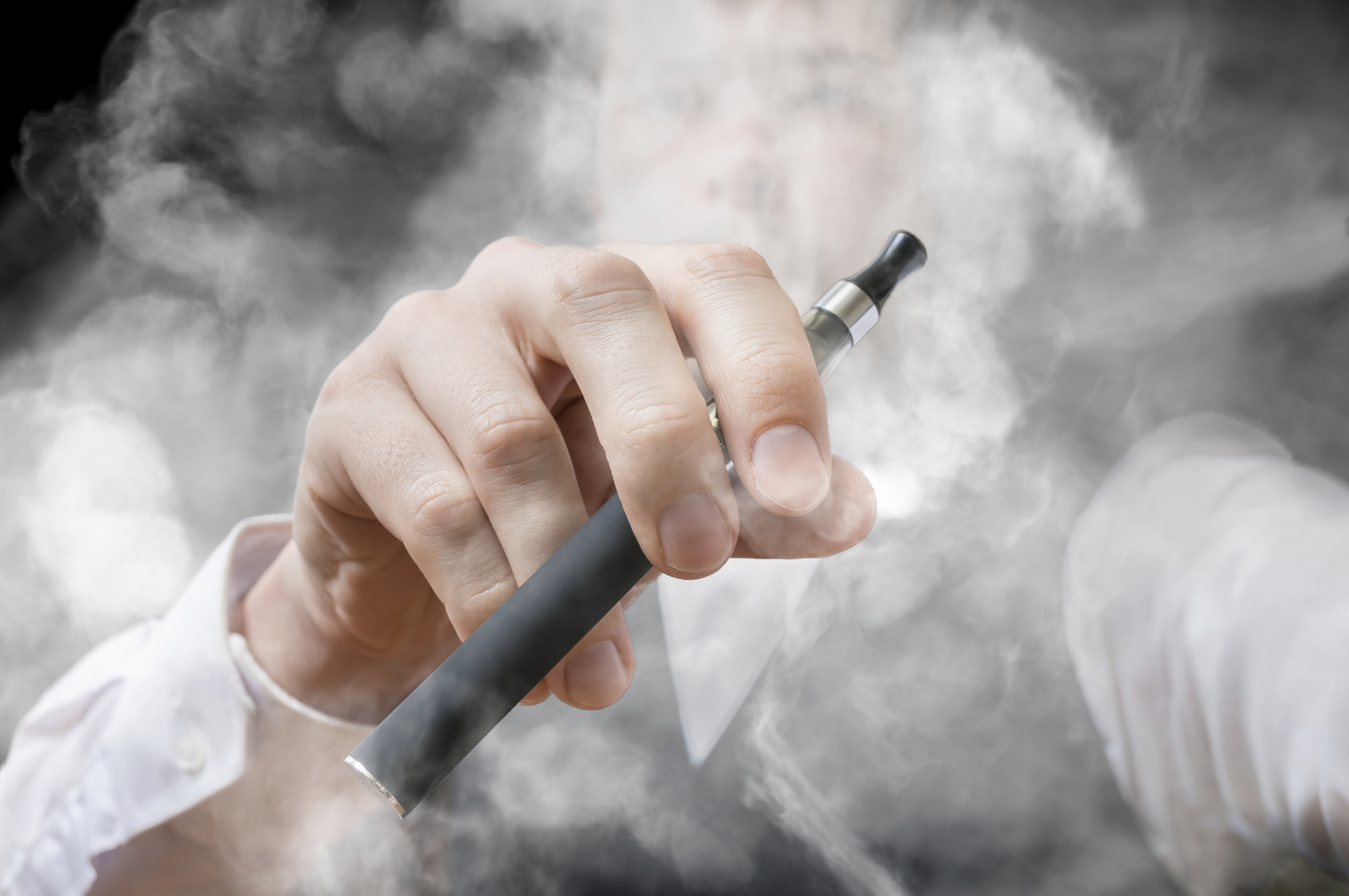Study Suggests More Young People Smoking Non-Cigarette Tobacco Like Cigars, Vapes
- New research published in Nicotine and Tobacco Research finds that over the last decade, young adults have been smoking non-cigarette combustible tobacco such as cigars and vaping in more significant numbers. “772,800 people now exclusively smoke tobacco other than cigarettes, up from 151,200 in 2013.”
- Guidelines published in CA: A Cancer Journal for Clinicians call for annual lung cancer screening for people aged 50 to 80 years old if they are heavy smokers with roughly 20 years of smoking history.
- Lung cancer doesn’t cause symptoms until it has already spread outside the lungs, making it harder to catch in its early stages. It predominantly impacts people with a history of smoking, although this cancer can also impact non-smokers.
- SurvivorNet experts such as Dr. Raja Flores say smoking cannabis can be linked to lung cancer, and its smoke may contain the same carcinogens as cigarettes – a known cancer risk factor.
- Cannabis users diagnosed with cancer are encouraged to share their smoking habits with their doctor.
Celebrities like rapper Jay-Z, comedian Steve Harvey, singer Rihanna, and actors Jack Nicholson and Jeff Bridges have been using cigars in recent years. Now, a growing trend is emerging among everyday people that appears to be reversing a decades-long effort to reduce tobacco use. A new study published in Nicotine and Tobacco Research points to young adults turning to non-cigarette combustible tobacco such as cigars and vaping.
Over the last ten years, “the portion of adults in England who do not use cigarettes at all but smoke other combustible tobacco products has increased substantially,” the study said.
Read More
RELATED: Study Suggests Cannabis Addiction Poses Health Risks Including Cancer
Helping You Understand the Cancer Risks from Smoking
- 95% of Smokers Take Up the Habit Before Age 21: Why New York Just Joined A Growing List of States that Have Raised the Legal Smoking Age
- Cigarette Sales Increase for the First Time in 20 Years On the Heels Of Lung Cancer Awareness Month; Understand the Risk of Smoking
- Does Smoking Marijuana Cause Lung Cancer?
- Does Smoking Marijuana Cause Lung Cancer? Top Experts Tell SurvivorNet a Public Health Crisis is Coming
- I Don’t Make People Feel Bad About Smoking: A Thoracic Surgeon’s Perspective
Smoking and Cancer Risk
The Centers for Disease Control and Prevention (CDC) says cigarette smoking is linked to about 80 to 90 percent of lung cancer deaths, and people who smoke cigarettes are 15 to 30 times more likely to get lung cancer or die from lung cancer than people who don’t smoke. Additionally, second-hand smoke can cause lung cancer.
Smoking is, of course, the primary cause of lung cancer, but nonsmokers can and do develop this disease. Researchers have made progress in understanding the differences between lung cancer in smokers versus nonsmokers, says Dr. Ronald Natale, a medical oncologist at Cedars-Sinai Medical Center, and they’re developing targeted treatments that will be able to address the genetic drivers of lung cancer in nonsmokers.

RELATED: Why is Esophagus Cancer On the Rise? Smoking, Heartburn, & Alcohol New Evidence
“Among patients who are nonsmokers, or former very light smokers, we identify a mutation that we can target with pills in about 60% to 70% of them. That leaves 30% or so, 40%, in whom we either have a target for which we do not have successful treatment,” Dr. Ronald Natale, a medical oncologist at Cedars-Sinai Medical Center, tells SurvivorNet.
“Among patients who are smokers, who have more complex cancers that have hundreds, sometimes thousands of mutations, don’t have a driver mutation that we can give a pill for, which is only a tiny percentage of lifelong smokers. Chemotherapy is the primary treatment in most patients,” Dr. Natale explains further.
Lung Cancer Screening Guidance
The new guidelines set by the American Cancer Society (ACS) recommend yearly lung cancer screening for people who “smoke or formerly smoked and have a 20-year or greater pack-year history,” an ACS press release says.
“This updated guideline continues a trend of expanding eligibility for lung cancer screening in a way that will result in many more deaths prevented by expanding the eligibility criteria for screening to detect lung cancer early,” said Dr. Robert Smith, senior vice president, early cancer detection science at the American Cancer Society and lead author of the lung cancer screening guideline report.
Lung cancer screening is painless and lasts only a few minutes. It involves using a low-dose computed tomography (LDCT). While lying on a table, an X-ray will scan your lungs for anything unusual, the CDC explains.
What About Cannabis?
The cancer risks associated with smoking cigarettes are well documented. However, some experts believe with conviction that cancer risks extend to smoking cannabis as well. Dr. Raja Flores, who is the Chairman of the Department of Thoracic Surgery for Mount Sinai Health System, is among those who believe cannabis fuels cancer risks. “Smoking marijuana likely causes lung cancer independent of cigarette smoking status,” Dr. Flores told SurvivorNet.
“I do think for cigarettes, there is a genetic predisposition to get lung cancer. As well as a genetic predisposition for substance abuse. So, it would not surprise me that there is a genetic link to lung cancer from smoking weed,” Dr. Flores continued.
“As someone on the front lines, who sees this every day, I’ve seen lung cancer caused by marijuana that is incredibly aggressive,” Dr. Flores previously told SurvivorNet.
“There is no really good population-based study that looks at marijuana smoking, and that has had enough time elapsed to show it’s associated with lung cancer, [but] I’ve seen it. I’ve seen multiple cases of it. I see it every day,” he added.

Using Marijuana to Manage Symptoms
Some cancer patients have turned to cannabis to help with their recovery. About 40% of breast cancer patients use cannabis, according to a 2021 study, and most patients who use the drug report doing so to relieve symptoms associated with treatment, such as pain, anxiety, insomnia, and nausea/vomiting.
Despite some positives cannabis may bring, the U.S. Food and Drug Administration (FDA) “has not approved a marketing application for cannabis for the treatment of any disease or condition.” However, the FDA has approved a cannabis-derived drug, “Epidiolex (cannabidiol), and three synthetic cannabis-related drug products, Marinol (dronabinol), Syndros (dronabinol) and Cesamet (nabilone).”
Although some experts disagree with cannabis use, SurvivorNet understands it is legal in parts of the country, and there are some medicinal uses for using it. If you are using cannabis, Dr. Brian Berman, professor of family community medicine at the University of Maryland School of Medicine, says users should tell their doctor about their smoking habits.
“I think that you should always tell whichever therapy we’re talking about, you should always inform your oncologist and your physician this is (using cannabis) what you’re doing,” Dr. Berman tells SurvivorNet.
Each state has its own requirements for obtaining a medical marijuana card. If you live in a state where medical marijuana use is legal and you think it might be the proper treatment for you, start by talking to your doctor.
“Medical cannabis, if you think about it, is only botanical medicine that can help nausea, increase appetite, decrease pain, and elevate mood,” Dr. Junella Chin, an integrative cannabis physician in New York, tells SurvivorNet.
Dr. Chin says she often sees patients seeking relief from the side effects of chemotherapy, which may include nausea, pain, decreased appetite, and depression. She says some physicians prescribe Marinol, or synthetic cannabis, to treat these side effects. However, she believes using the actual cannabis plant is much more helpful when used to relieve symptoms.
Learn more about SurvivorNet's rigorous medical review process.

